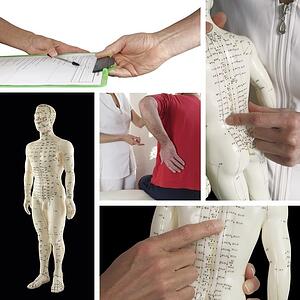Menu
- SITCM Overview
- Prospective Students
- Current Students
- Alumni
- Teaching Clinic
Whether you are about to experience your initial visit to a Traditional Chinese Medicine (TCM) practitioner, or you have seen a TCM in the past, these guidelines are a solid course to follow before you walk into the TCM waiting room. For many patients, writing down symptoms and questions they might want to ask the practitioner is always a good idea.

The TCM practitioner will commence by asking you questions about your physical conditions. Many initial consultations take from 60 to 90 minutes. The doctor’s inquiries will include these topics:

Patient questions might include:
The treatments recommended by your doctor could include the following procedures:
In a research article for Biomed Central (BMC), published in 2017, the authors interviewed experienced TCM practitioners. Since TCM treatment outcomes are concerned with understanding patients’ biophsychosocial health and not a single disease or symptom, the overall health of a patient is seen in TCM as the central issue. One TCM practitioner involved in the experiment said:
Relief from the patients’ chief complaints is the main criteria for evaluating effectiveness. The patient often takes the initiative in telling us what he is concerned about and most anxious to improve, which is the most important part of the assessment of therapeutic effects.
Another added:
TCM treatment has beneficial effects on patients’ general well-being and functioning. When physical symptoms are relieved, moods usually also improve, and patients’ happiness index increases. This creates a continuous positive feedback.
The Sydney Institute of Traditional Chinese Medicine (SITCM)
You can book your appointment at SITCM on its website. You may find that TCM is the answer for improving your entire sense of well-being. Our staff hopes to assist you in all aspects of your life-balance.
Looking for a course that gives you purpose in life, work helping others and be job ready after graduate join us on July 21st for our Open Day!
Study at SITCM and take your career to the next level.
Enrol now to our July intake.